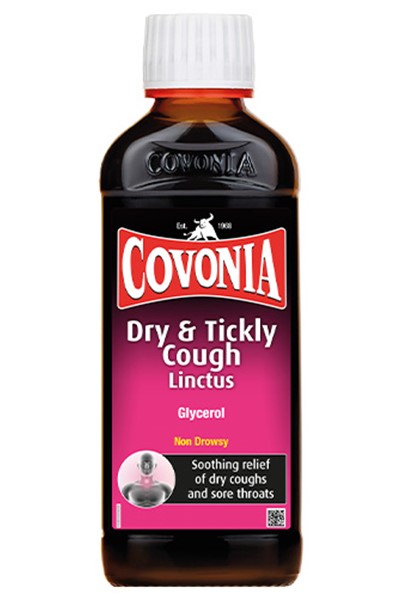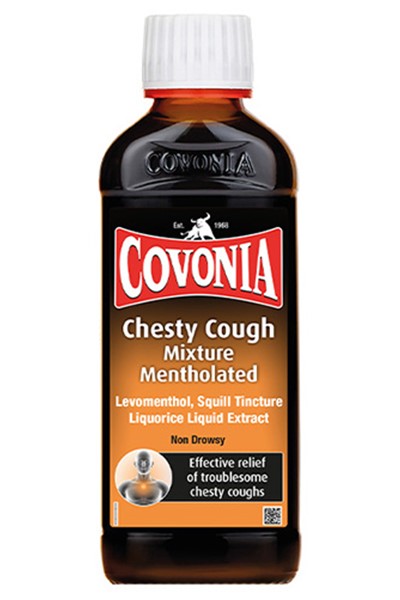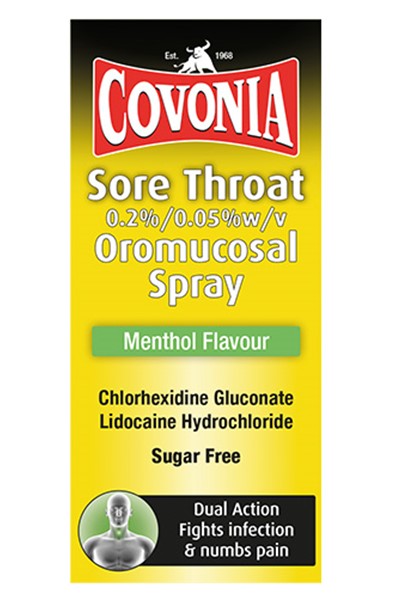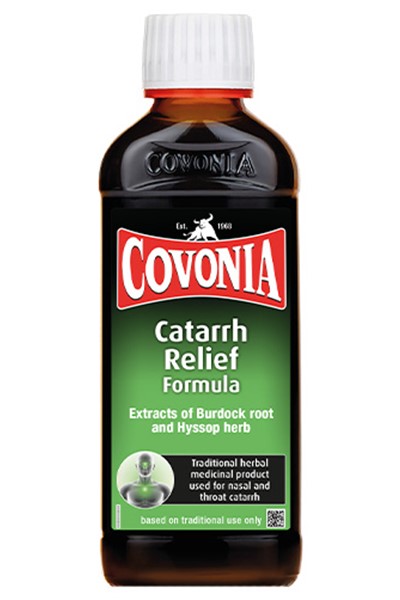DRY COUGH ADVICE: CAUSES, SYMPTOMS & TREATMENTS
If you’re struggling with a persistent dry cough, fight back with expert advice from Covonia and some tips from a specialist doctor on common dry cough causes, symptoms and how to help get rid of one.
Note: The doctor involved does not endorse any medical brands or products.
WHAT IS A DRY COUGH?
A dry or unproductive cough is caused by inflammation in your throat and upper airways, which creates a tickly sensation. Generally, there’s no phlegm or mucus being produced, and you often develop a sore throat due to coughing so much, as your body is trying to get rid of mucus that’s not actually there.
DRY COUGH SYMPTOMS
When suffering from a dry cough, your airways and lungs aren’t congested or blocked up – instead, they become irritated and cause a tickling sensation which results in a persistent dry cough. This constant coughing can lead to a sore throat. Hear a doctor explain more about cough symptoms, here.
If you start to cough up blood, feel short of breath, faint, have a temperature or experience severe pain when coughing, please see your GP or pharmacist.

HOW DOES A DRY COUGH SOUND AND FEEL?
Because of the lack of mucus, your chest won’t feel heavy or sound congested if you have a dry cough. Your breathing can be normal, and you may feel well, apart from the cough. However, due to the constant coughing, you may suffer from a sore throat.
WHAT CAUSES A DRY COUGH?
Dry cough causes vary; most are the result of a recent cold or flu, which is often called a post-viral cough. However, they may also be caused by an allergy, asthma or chronic acid reflux. Less common dry cough causes include environmental factors like a dry atmosphere, air pollution or a sudden change in temperature. In rare cases, a dry cough is a symptom of an underlying condition like lung cancer or heart failure, so it’s important to understand the true cause of your dry cough so you can treat it effectively.
HOW LONG DOES A DRY COUGH LAST?
A dry cough will usually clear up on its own within three to four weeks. This may seem like a long time, but while your body is recovering, you can ease symptoms with a suitable treatment.
Please take care and contact your pharmacist or GP for more information if your cough persists or worsens; asthma, heartburn or heart failure can all be indicated by a dry cough. Equally, if you have another medical condition or are taking any other medicines, it’s best to see a medical professional.
HOW TO HELP GET RID OF A DRY COUGH
While there is no single dry cough cure, there are things you can do to ease symptoms. If you’re wondering what helps a dry cough, here are our key pointers:
- Gargle with plain water up to three times a day to get rid of bacteria in your mouth and throat
- Stay hydrated by drinking plenty of fluids each day
- Don’t try to suppress coughs as this can make them worse
- Try consuming hot drinks with honey and lemon to relieve coughing
- Stop a coughing fit by sipping on water or sucking on throat lozenges
- Avoid dry environments and highly polluted areas which can trigger dry coughs
HOW TO TREAT A DRY COUGH
There are a range of over-the-counter dry cough treatments available to provide relief from persistent coughs. We recommend trying specialist cough medicines like our Dry Cough Sugar Free, Night Time Formula or Original Bronchial Balsam Syrup to help soothe the cough reflex. You can also try our Medicated Sore Throat Lozenges to get relief from a sore throat.
For more information on dry coughs, or if you think you have a different type of cough, visit our Articles & Advice hub to learn more. Check out our full list of products to fight back against cough and cold symptoms. Take life by the horns with Covonia.








